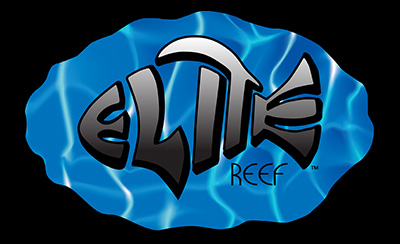Posted by Elite Reef Feb - 11 - 2012 0 Comment

This week brought a huge shipment of fish and inverts. Check out just a few on the massive list of fish that will be out of quarantine next week. Stop by soon to reserve one… YELLOW LONGNOSE BUTTERFLY BANGGAI CARDINALS LONGNOSE HAWKFISH SPOTTED HAWKFISH FOXFACE CHEVRON TANG KOLE TANG MIMIC LEMON PEEL TANG NASO TANG Read More …

Check out the tiny lionfish that came in the shipment last night!
Posted by Elite Reef Jan - 23 - 2012 0 Comment

We have a nice small purple tang in ready for a new home.
Posted by Elite Reef Jan - 22 - 2012 0 Comment

We’ve got a really nice chevron tang in this week. It will be out of quarantine early next week.
Posted by Elite Reef Jan - 21 - 2012 0 Comment

Check out the sweet emperor angel misbar we managed to score this week!
Posted by Elite Reef Jan - 3 - 2012 0 Comment

Common Name: Melanurus, tailspot or neon wrasse Scientific Name: Halichoeres Melanurus Maximum Size: 4.7 in. Minimum Tank Size: 30 Gallons Reef Compatible: Yes Diet: Meaty foods including aquarium pests such as: pyramid snails, flatworms, nudibranchs, bristle worms and many more. Temperament: Non aggressive to most species except othermelanurus. Can be kept in pairs. Other Notes: We house melanurus wrasses in all of our coral flats at Elite Read More …
Posted by Elite Reef Jan - 3 - 2012 0 Comment

Common Name: Redheaded Fairy Wrasse, Solar Fairy Wrasse Scientific Name: Cirrhilabrus Solorensis Maximum Size: 5.1 in. Minimum Tank Size: 55 Gallons Reef Compatible: Yes Diet: Meaty foods Temperament: As with other fairy wrasses this one is non aggressive and may even be kept with other fairy wrasses. If adding more than one be sure to introduce them at the same time
Posted by Elite Reef Jan - 3 - 2012 0 Comment

Common Name: Humuhumu Trigger Scientific Name: Rhinecanthus Aculeatus Maximum Size: 9.8 in. Minimum Tank Size: 55 Gallons Reef Compatible: No Diet: Meaty foods including inverts Temperament: Aggressive do not keep with members of the same species
Posted by Elite Reef Jan - 3 - 2012 0 Comment

Common Name: Yellow Tang Scientific Name: Zebrasoma Flavescens Maximum Size: 7.9 in. Minimum Tank Size: 75 Gallons Reef Compatible: Yes Diet: Mostly vegetable matter but will eat a variety of meaty foods also Temperament: Non aggressive to most species except other members of the family zebrasoma
Posted by Elite Reef Jan - 3 - 2012 0 Comment

Common Name: Hippo Tang, Palette Surgeonfish Scientific Name: Paracanthurus Hepatus Maximum Size: 12.2 in. Minimum Tank Size: 100 Gallons Reef Compatible: Yes Diet: Mostly vegetable matter but will eat a variety of meaty foods also Temperament: Non aggressive to most species except other members of the family paracanthurus Other Notes: Hippo tangs are one of the more sensitive of the surgeonfish group. Care must be Read More …








